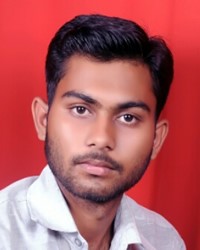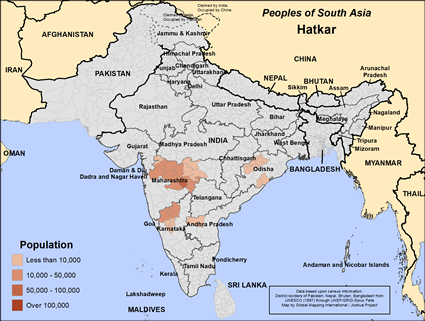Hatkars are a Hindu Kshatriya caste found in the Deccan region of India. Their language is Marathi, and they live mainly in Maharashtra's Marathwada region.
Their ancestors were Kshatriya warriors who served under various Deccan and Maratha rulers. Some members of the Hatkar community practiced pastoral occupations and agriculture. Hatkar is also a surname used by Saraswat Brahmins in Maharashtra, which is entirely different from the Hatkar caste.
Hatkars are becoming farmers and business owners. A small number of educated urban Hatkars have become wealthy.
As Hindus, the Hatkars obtain the services of Brahmin priests for important life events such as births, weddings, and funerals.
There are probably no Christ followers among the Hatkar. This indicates a lack of receptivity to the gospel.
Pray that Hatkar families and communities will put their faith in Christ and experience God's blessings.
Pray that God will overthrow spiritual forces of darkness opposing the spread of his gospel among the Hatkar.
Pray for Hatkar who have migrated to Mumbai to hear and respond to the gospel.
Pray that soon Hatkar elders will hear and respond to the life-giving gospel throughout Maharashtra.
Scripture Prayers for the Hatkar in India.
| Profile Source: Joshua Project |











